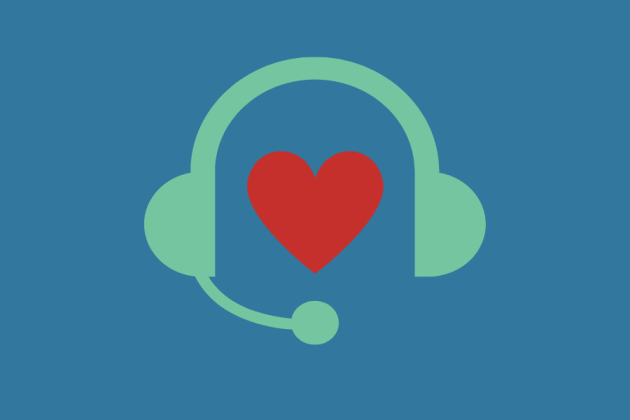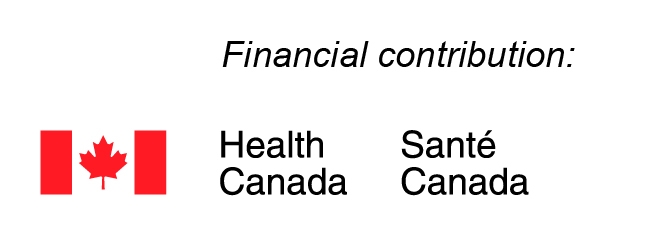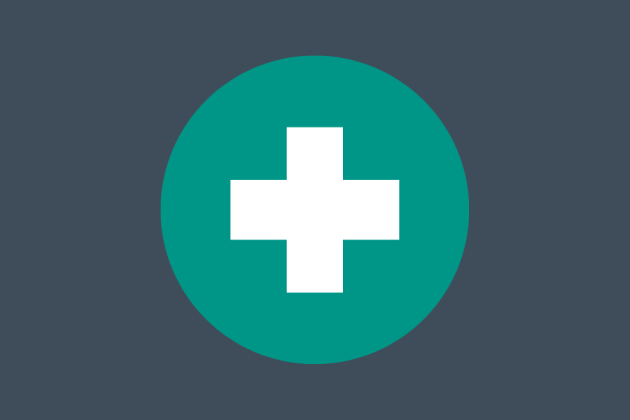
Everyone in Canada is entitled to safe abortion care from a qualified healthcare provider. In practice though, not everyone has access to this.
While many healthcare providers will be supportive, some may refuse to help. Planning what to do if you don’t get support can help you feel more prepared to handle whatever happens.
If your healthcare provider won't help
Some healthcare providers won’t feel comfortable providing abortion because they haven’t done it before. If that’s the case, you could offer them the resources in this guide so they can learn more. They might be interested in starting to provide this care to support you and others in your community.
Other healthcare providers will refuse to provide abortions because of personal and not medical reasons. It could be because their religion says it's wrong, or they feel it goes against their values. It's always okay to end a conversation with someone who is not going to help you and leave.
Remember that the healthcare provider’s response isn't about you - even though it affects you. You might not be the first person they've turned away, or the last. You deserve supportive healthcare and you can consult the Resources and Helplines section below to find a provider who will help.
What you can say
- “If you're saying you don't provide abortion because of your personal beliefs, can I have a referral to someone who does?”
- “I'm not here to debate my decision. Can you refer me to someone who provides abortions?”
- “This is very common medical care that I need and I have a right to it. If you won’t help me, that’s your choice but I'm going to leave now.”
- “Thanks, bye.”
![]()
Take Care of Yourself
You can prepare for the possibility of being denied abortion care by preparing some ways to take care of yourself after your appointment.
Taking care of yourself can look like many things and you get to decide what would feel best for you.
Acknowledge and honour how you feel
It's normal if being denied care that you have a right to brings up some hard feelings. You might feel angry, frustrated, disappointed, judged, or ashamed by the healthcare provider's response.
Remember that there's no wrong way to feel. This is your experience and your life so the only feelings that matter here are your own. It's okay to feel good about your decision. It’s also okay if you don't. It can also be normal to have mixed feelings and feel more than one thing.
Consider how you usually cope with difficult feelings
If you’re not sure or you want to try something new, you might try releasing the energy by screaming into a pillow, ripping up paper, journaling, dancing it out, taking deep breaths, etc.
Document your experience
Write down what happened. Include facts like the date, names, and details of what the healthcare provider said. You can also include how you felt and what this meant for you. Writing things down can also help you process what happened. Having this in writing can also come in handy if you decide to file a formal complaint later. See information on reporting a bad experience below.
Reach out for support
Talk to friends, family, a therapist, a teacher, or someone else you trust about your experience. Sharing your feelings can help you move through them, and sort out what matters most to you. Talking to someone who has experience with helping others through getting an abortion can also be helpful. See the Resources and Helplines section below
Practice self and community care
Plan to do things that bring you comfort or help you feel nourished. For example: having a nap, eating a favourite meal, saying a prayer or doing ceremony, treating yourself. If you were your best friend, what would you say to comfort you? You may want to seek the company of others. This could be by being in a public space or staying home with people who love you. It’s okay to let others support you.
Get your abortion somewhere else
This is not the end of the road, and you can move on to other sources of support. See Find Your Nearest Abortion Provider below in our Resources and Helplines section.
Reporting a healthcare provider
Deciding whether or not to report a bad experience with a healthcare provider is completely up to you. It’s okay to take the time you need to decide. It’s also okay to prioritize getting the healthcare you need and taking care of yourself first.
In Canada, healthcare providers are allowed to refuse to provide abortion care so the refusal itself isn’t something that can be reported. However, based on their location there may be specific requirements for what they need to do to make sure you can access that care from someone else.
In Ontario and Nova Scotia, doctors need to make sure you have access to another healthcare provider who can provide the care they won't. If they don’t do that, you can report it to the College of Physicians and Surgeons of Ontario or the College of Physicians and Surgeons of Nova Scotia.
If a healthcare provider refused to provide abortion in a way that was disrespectful, judgmental, or discriminatory, you can report their conduct. Every regulatory body for healthcare providers in every province and territory has a process for making complaints.
The following links will direct you to information on how to make a complaint with each college.
Colleges of Physicians and Surgeons
Colleges of Nurses
Order of Midwives (Quebec)
Quebec is currently the only province where midwives can prescribe medication abortion.
![]()
Find Your Nearest Abortion Provider
National Directories
- Action Canada Sexual Health Service Provider Directory
- Action Canada Access Line: call 1-888-642-2725, text 613-800-3757, or email access@actioncanadashr.org
- Abortion Rights Coalition of Canada – Abortion Clinics and Services in Canada
- Choice Connect
British Columbia
- Pregnancy Options Line: province-wide, toll-free confidential counselling, information and referral service: 1-888-875-3163 (604-875-3163 from the Lower Mainland)
- Options for Sexual Health: Clinic Finder
Northwest Territories
- Northern Options for Women (NOW): 867-765-4018 (outside Yellowknife: 1-888-873-5710)
Nova Scotia
- Provincial Self-referral line: 1-833-352-0719
Prince Edward Island
- Sexual Health, Options & Reproductive Services (SHORS) 1-844-365-8258
Quebec
Choosing Between Medication and Procedural Abortion
There are two methods of abortion available: medication and procedural (also called surgical). If you want an abortion but you're not sure which method is right for you, the It’s My Choice interactive patient decision aid can help.
Pregnancy Options Counselling
If you are pregnant and not sure what you’d like to do, these organizations offer unbiased counseling to support you:
- All-Options Talkline: Call 1-888-493-0092
- Action Canada Access Line: Call 1-888-642-2725, text 613-800-3757, or email access@actioncanadashr.org
- Faith Aloud Spiritual Care Line: 1-888-717-5010 Compassionate and nonjudgmental support from trained clergy and religious counsellors from diverse faiths.
- Choice in Health Clinic Pregnancy Options and Post-Abortion Counselling Program: Call 647-370-3203.
If you prefer not to speak with someone, these are materials to explore on your own:
- Making a Decision About a Pregnancy by Action Canada for Sexual Health and Rights
- Pregnancy Options Workbook
- Unsure About your Pregnancy? A Guide to Making the Right Decision for you by National Abortion Federation (warning: gendered language).
Abortion Doulas and Support People
Atlantic Canada
Abortion Support Services Atlantic (ASSA)
Alberta
Alberta Abortion Access Network
Pro-Choice Society of Lethbridge & Southern Alberta
British Columbia
Full Spectrum Doulas Vancouver
Abortion Support Collective (Victoria)
Ontario
Ottawa
Ottawa Abortion Doula Collective
Aunties on the Road (for people who self-identify as indigenous)
Niagara
Niagara Reproductive Justice
London
The Peaceful Path Full Spectrum Doulas
Saskatchewan
Saskatoon Abortion Support Network (SASN)
Northwest Territories
Northern Birthwork Collective
If you are a doula and would like to be added here, please email access@actioncanadashr.org
Resource for doulas: A Doula's Guide to Abortion in Canada.
General Information and Support
Action Canada for Sexual Health and Rights
Access Line: Call 1-888-642-2725 or text 613-800-6757. Open every day 9am – 9pm EST.
Email access@actioncanadashr.org
Abortion Care Canada (formerly NAF Canada)
Email: support@abortioncarecanada.ca
These organizations can:
- Help you find the nearest abortion provider.
- Support with logistics and practical needs if you must travel to get to the nearest provider.
- Provide emotional support before and/or after an abortion
- Connect you with other services.
This information is part of the Asking for an Abortion Pocket Guide, which provides facts and tips on how to ask a healthcare professional for medication abortion. It was last reviewed in April 2025.


The views expressed herein do not necessarily represent the views of Health Canada.

